Description
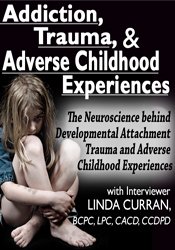
-
Linda Curran, Vincent Felitti, Gabor Maté, Louis Cozolino, Bessel van der Kolk, James W. Hopper, Lance Dodes, Lisa Ferentz, …. – Addiction, Trauma, & Adverse Childhood Experiences (ACEs): The Neuroscience behind Developmental/Attachment Trauma and Adverse Childhood Experiences.
- Faculty:
- Linda Curran | Vincent Felitti | Gabor Maté | Louis Cozolino | Bessel van der Kolk | James W. Hopper | Lance Dodes | Lisa Ferentz | ….
- Duration:
- 5 Hours 17 Minutes
- Format:
- Audio and Video
- Copyright:
- Aug 01, 2016
Description
Clients are desperately trying to make sense of their symptoms of depression, free-floating anxiety, addictive behaviors, dysregulated emotions, physiological arousal, and seemingly unrelated medical issues. They look to you to create an understanding, provide an accurate diagnosis, and layout an effective treatment approach; however, you find that you can’t without understanding and addressing their “why”. The science is clear and overwhelming about the lasting effects of adverse childhood experiences, developmental trauma, and attachment wounds.
In this video, you will learn key insights regarding the neuroscience of addiction from the Adverse Childhood Experiences (ACE) Study, one of the largest investigations of childhood abuse and neglect, and the impact on later-life health and well-being. You will understand the important assessment and treatment implications from neuroscience that show us addiction is experience dependent, not substance dependent.
You will learn treatment recommendations from the leading experts in trauma and addictions treatment including:
- Bessel A van der Kolk, MD, New York Times best-selling author and the world’s leading expert on psychological trauma
- Vincent Felitti, MD, co-principal investigator of the ACE Study
- Louis John Cozolino, PhD
- Lance Dodes, MD
- Lisa Ferentz, LCSW-C, DAPA
- Jim Hopper, PhD
- Gabor Maté, MD
- Lane Pederson, PsyD, LP, DBTC
- Mary Lou Schack, PhD
Fusing research and theory about attachment and complex developmental trauma, these experts provide invaluable insight that informs our therapy, including:
- The therapeutic alliance, along with all its inherent challenges with boundaries and clinical enactments
- The use of contemplative practices for changing the brain
- Teaching skills for self-regulation
- Evidence-based modalities for both stabilization and processing traumatic material
These experts help illustrate how your clients do not get over or grow out of childhood trauma. These painful experiences, when left unrecognized or untreated, continue to impact us throughout our lifetime; however, with this new insight you can finally say to your client:
Your behavior absolutely makes sense and here’s what neuroscience and the ACE Study tells us about the association between your experiences as a child and your struggles as an adult.
Featuring-Linda Curran, BCPC, LPC, CACD, CCDP-D, a trauma specialist, veteran clinician, and best-selling author of Trauma Competency: A Clinicians Guide and 101 Trauma-Informed Interventions. Linda has collaborated with the world’s leaders in trauma, including Bessel van der Kolk, M.D., to develop best-selling DVDs and books covering all aspects of psychological trauma, including three video projects for The Master Clinician Series: Trauma Treatment: Psychotherapy for the 21st Century; Power Therapies: EMDR and Beyond; and Evidence-Based Treatments for PTSD.
Outline
- The Origins of the ACE Study
- 10 Categories Studied
- Categories of Abuse
- Physical
- Emotional
- Contact Sexual
- Categories of Neglect
- Emotional
- Physical
- Categories of Household Dysfunction
- Household Substance Abuse
- Mother Treated Violently
- Household Mental Illness
- Incarcerated Household Member
- Parental Separation or Divorce
- Categories of Abuse
- Demographics
- Impact on
- Emotional State
- Mental Illness
- Social Malfunction
- Occupational Performance
- Biomedical Health
- Disease
- Premature Death
- Damage Occurs
- Various “Maladaptive” Coping Mechanisms
- Evidence Against the Disease Model of Addiction
- People Couldn’t Stop Using
- Spontaneous Remission
- Shift to Behavioral Addictions
- DA Response is Immediate
- Different Causes of Relapse
- Evidence Against the Disease Model of Addiction
- Chronic Unrelieved Stress on the Brain
- Disrupted Brain Development
- Epinephrine
- Norepinephrine
- Cortiso
- Dopamine
- Serotonin
- Disrupted Brain Development
- Epigenetics
- Borderline Personality Disorder
- Re-victimization
- Complex PTSD
- Various “Maladaptive” Coping Mechanisms
- Implementing ACE Study Information
- The Addition of 10 Trauma-Oriented Questions
- Treatment
- Neuroscience of Trauma
- Addiction Treatment Trauma
- 12 Step Program vs. Treatment
- Rehab
- Recommendations
- Therapeutic Relationship Complex Trauma
- Therapeutic Alliance
- Clinical Enactments
- Mandated Therapy for Therapists
- Simple Interventions
- The Body and the Brain; Embodiment Circuitry
- 5 Functions of DBT
- Increasing Client Motivation
- Increasing Client Capability
- Generalize Skills
- Increasing Therapist Motivation
- Structure
- DBT Skills
- Mindfulness
- Distress Tolerance
- Emotion Regulation
- Interpersonal Effectiveness
- DBT Interventions
- More on the Phase Model of Treatment
- Simple vs. Complex PTSD
- Trauma Processing Modalities
- Evidence-Based Practice
Please Note: PESI is not affiliated or associated with Marsha M. Linehan, PhD, ABPP, or her organizations.
Faculty

Linda Curran, BCPC, LPC, CACD, CCDPD Related seminars and products: 14
Linda A. Curran, BCPC, LPC, CACD, CCDPD, EMDR Level II Trained, is president of Integrative Trauma Treatment, LLC in Havertown, PA. She provides clients an integrative approach to trauma, and treats PTSD in adolescent and adult populations, including clients with eating disorders, sexual trauma, and self-injury. An international speaker on the treatment of trauma, Linda has developed, produced, and presents multi-media workshops on all aspects of psychological trauma.
Linda is the author of the best-selling Trauma Competency: A Clinician’s Guide (PESI, 2010) and 101 Trauma-Informed Interventions: Activities, Exercises and Assignments to Move the Client and Therapy Forward (PESI, 2013). She is the producer of the best-selling Interview Trauma DVD series in which she collaborated with the world’s leaders in Trauma: Bessel van der Kolk, M.D.; Peter Levine, Ph.D.; Babette Rothschild, MSW, LCS; Stephen Porges, Ph.D.; Janina Fisher, Ph.D.; and many more.
Speaker Disclosures:
Financial: Linda Curran maintains a private practice. She receives a speaking honorarium from PESI, Inc.
Nonfinancial: Linda Curran has no relevant nonfinancial relationship to disclose.

Gabor Maté, MD Related seminars and products: 11
Adjunct Professor in the Faculty of Criminology
Simon Fraser University
Gabor Maté MD, is a renowned speaker, and bestselling author. Dr. Gabor Maté is highly sought after for his expertise on a range of topics including addiction, stress and childhood development.
As an author, Dr. Maté has written several bestselling books including the award-winning In the Realm of Hungry Ghosts: Close Encounters with Addiction; When the Body Says No; The Cost of Hidden Stress; and Scattered Minds: A New Look at the Origins and Healing of Attention Deficit Disorder, and co-authored Hold on to Your Kids.
Dr. Maté is the co-founder of Compassion for Addiction, a new non-profit that focuses on addiction. He is also an advisor of Drugs over Dinner.
An adjunct professor in the Faculty of Simon Fraser University, Dr. Maté has received the Hubert Evans Prize for Literacy Non-Fiction; an Outstanding Alumnus Award from Simon Fraser University, and the 2012 Martin Luther King Humanitarian Award from Mothers Against Teen Violence.
Speaker Disclosures:
Financial: Dr. Gabor Maté is the co-founder of Compassion for Addiction. He is an author for Knopf/Random House; Penguin/Putnam; Knopf Canada; Wiley; and Random House and receives royalties. Dr. Maté receives a speaking honorarium from PESI, Inc.
Non-financial: Dr. Gabor Maté has no relevant non-financial relationship to disclose.
Louis Cozolino, PhD Related seminars and products: 5
Louis Cozolino, PhD, is a professor of psychology at Pepperdine University and maintains a clinical and consulting practice in West Los Angeles. He is the author of Attachment-Based Teaching: Creating a Tribal Classroom, The Social Neurosience of Education: Optimizing Attachment and Learning in the Classroom, The Neuroscience of Psychotherapy, The Making of a Therapist, The Neuroscience of Human Relationships, and The Healthy Aging Brain, all from W.W. Norton.
Dr. Cozolino holds degrees in Philosophy (State University of New York, Stony Brook), Theology (Harvard University), and a PhD in Clinical Psychology from UCLA. He speaks internationally on neuroscience and education.
Speaker Disclosures:
Financial: Louis Cozolino is faculty at Pepperdine University and maintains a private practice. Mr. Cozolino has books published by W. W. Norton. He receives a speaking honorarium from PESI, Inc.
Non-financial: Louis Cozolino is a member of the American Neuropsychiatric Association (ANPA), International Society for the Study of Dissociative Identity Disorder and Dissociation (ISSDID), Society for Research in Psychopathology (SRP), International Society for Traumatic Stress Studies (ISTSS), and Los Angeles County Psychological Association (LACPA).

Bessel van der Kolk, M.D. Related seminars and products: 58
Bessel A. van der Kolk, M.D., is a clinician, researcher and teacher in the area of post-traumatic stress. His work integrates developmental, neurobiological, psychodynamic and interpersonal aspects of the impact of trauma and its treatment.
Dr. van der Kolk and his various collaborators have published extensively on the impact of trauma on development, such as dissociative problems, borderline personality and self-mutilation, cognitive development, memory, and the psychobiology of trauma. He has published over 150 peer reviewed scientific articles on such diverse topics as neuroimaging, self-injury, memory, neurofeedback, Developmental Trauma, yoga, theater, and EMDR.
He is founder of the Trauma Center in Brookline, Massachusetts, and President of the Trauma Research Foundation, which promotes clinical, scientific, and educational projects.
His 2014 #1 New York Times best seller, The Body Keeps the Score: Brain, Mind, and Body in the Treatment of Trauma, transforms our understanding of traumatic stress, revealing how it literally rearranges the brain’s wiring – specifically areas dedicated to pleasure, engagement, control, and trust. He shows how these areas can be reactivated through innovative treatments including neurofeedback, somatically based therapies, EMDR, psychodrama, play, yoga, and other therapies.
Dr. van der Kolk is the past president of the International Society for Traumatic Stress Studies, and professor of psychiatry at Boston University Medical School. He regularly teaches at conferences, universities, and hospitals around the world.
Speaker Disclosures:
Financial: Bessel van der Kolk is a professor of psychiatry at the Boston University School of Medicine. He receives a speaking honorarium from PESI, Inc.
Non-financial: Bessel van der Kolk has no relevant non-financial relationship to disclose.
James W. Hopper, Ph.D. Related seminars and products: 2
James W. Hopper, Ph.D., Independent consultant and instructor in psychology, Cambridge Health Alliance & Harvard Medical School. Co-editor, Mindfulness-oriented interventions for trauma: Integrating contemplative practices. The MDMA Team, Trauma Research Foundation.
Lance Dodes Related seminars and products: 2
Lance Dodes, M.D., is a Training and Supervising Analyst with the Boston Psychoanalytic Society and Institute and assistant clinical professor of psychiatry at Harvard Medical School. He is Chair of the annual discussion group The Patient with Addiction in Psychotherapy and Psychoanalysis at the winter meeting of the American Psychoanalytic Association. Dr. Dodes has been honored by the Division on Addictions at Harvard Medical School for “Distinguished Contribution” to the study and treatment of addictive behavior.

Lisa Ferentz, LCSW-C, DAPA Related seminars and products: 12
The Ferentz Institute
Lisa Ferentz, LCSW-C, DAPA, is a recognized expert in the strengths-based, de-pathologized treatment of trauma and has been in private practice for over 35 years. She presents workshops and keynote addresses nationally and internationally, and is a clinical consultant to practitioners and mental health agencies in the United States, Canada, the UK, and Ireland.
She has been an adjunct faculty member at several universities, and is the founder of “The Ferentz Institute,” now in its 12th year of providing continuing education to mental health professionals and graduating over 1,600 clinicians from her two certificate programs in Advanced Trauma Treatment.
In 2009 she was voted the “Social Worker of Year” by the Maryland Society for Clinical Social Work. Lisa is the author of Treating Self-Destructive Behaviors in Trauma Survivors: A Clinician’s Guide, 2nd Edition (Routledge, 2014), Letting Go of Self-Destructive Behaviors: A Workbook of Hope and Healing (Routledge, 2014), and Finding Your Ruby Slippers: Transformative Life Lessons From the Therapist’s Couch (PESI, 2017). Lisa also hosted a weekly radio talk show, writes blogs and articles for websites on self-harm and self-care, and teaches on many webinars.
Speaker Disclosures:
Financial: Lisa Ferentz is in private practice. She receives a speaking honorarium from PESI, Inc.
Non-financial: Lisa Ferentz is a member of the National Association of Social Workers; and the American Psychotherapy Association.
Mary Lou Schack, Ph.D. Related seminars and products: 2
Mary Lou is a clinical psychologist, working with individuals and couples and supervising therapists in her Bala Cynwyd, PA, practice. She received her PhD in Psychology from Temple University and has been training therapists in experiential methods for more than 30 years. She herself trained in Gestalt Therapy with James Simkin, Isadore From, Laura Perls, and Erving and Miriam Polster. She is, with the late Joyce Lewis, one of the founders of GTIP. Mary Lou’s current areas of theoretical interest include mutuality and connection in relationships, the experience of time, scapegoating phenomena, body/mind functioning, forgiveness, and the healing of early psychological wounds.

Lane Pederson, Psy.D, LP Related seminars and products: 16
Consultation and Therapy
Lane Pederson Psy.D, LP, has provided Dialectical Behavior Therapy (DBT) training and consultation to over 10,000 professionals in the United States, Australia, South Africa, Dubai, Canada, and Mexico through his training and consultation company, Lane Pederson and Associates, LLC (www.DrLanePederson.com). A real world practitioner, Dr. Pederson co-owns Mental Health Systems, PC (MHS), one of the largest DBT-specialized practices in the United States with four clinic locations in Minnesota (www.mhs-dbt.com). At MHS Dr. Pederson has developed DBT programs for adolescents, adults, people with dual disorders, and people with developmental disabilities. He has served as clinical and training directors, has directed practice-based clinical outcome studies, and has overseen the care of thousands of clients in need of intensive outpatient services.
Dr. Pederson’s DBT publications include The Expanded Dialectical Behavior Therapy Skills Training Manual, 2nd Edition: DBT for Self-Help and Individual & Group Treatment Settings (PESI, 2017); Dialectical Behavior Therapy: A Contemporary Guide for Practitioners (Wiley, 2015); Dialectical Behavior Therapy Skills Training for Integrated Dual Disorder Treatment Settings (PESI, 2013) and The DBT Deck for Clients and Therapists: 101 Mindful Practices to Manage Distress, Regulate Emotions & Build Better Relationships (PESI, 2019).
Notable organizations he has trained for include Walter Reed National Military Hospital, the Federal Bureau of Prisons, the Ontario Psychological Association, the Omid Foundation, and Psychotherapy Networker. He has provided DBT training for community mental health agencies, chemical dependency treatment centers, hospital and residential care settings, and to therapists in forensic settings. Dr. Pederson also co-owns Acacia Therapy and Health Training (www.AcaciaTraining.co.za) in South Africa. Dr. Pederson currently serves on the advisory board for the doctorial counseling program at Saint Mary’s University of Minnesota and is a peer reviewer for Forensic Scholars Today.
Lane Pederson is not affiliated or associated with Marsha M. Linehan, PhD, ABPP, or her organization.
Speaker Disclosures:
Financial: Lane Pederson maintains a private practice. He is an author for PESI Publishing & Media and receives royalties. Dr. Pederson receives a speaking honorarium from PESI, Inc.
Non-financial: Lane Pederson has no relevant non-financial relationship to disclose.
Christine A. Courtois Related seminars and products: 1
Christine A. Courtois, PhD, ABPP, is a graduate of the Counseling Psychology program at the University of Maryland and a licensed psychologist in DC and MD. Dr. Courtois has received international recognition for her work on the effects of incest, child sexual abuse, complex traumatic stress disorders and other types of trauma and has received awards from numerous professional organizations. She is a psychotherapist (with broad experience in outpatient and inpatient treatment), workshop leader, and consultant specializing in posttraumatic and dissociative conditions and disorders.
Recently appointed chair of the American Psychological Association PTSD Guidelines Development Panel, Dr. Courtois has co-authored, along with Dr. Julian Ford, Treating Complex Trauma: A Sequenced, Relationship-based Approach,(2013, Guilford Press), and has a new book, Treating Complex Traumatic Stress Disorders in Children and Adolescents, Scientific Foundations and Therapeutic Models. As well she has brought out the second edition of Healing the Incest Wound: Adult Survivors in Therapy (W. W. Norton), co-edited (with Dr. Julian Ford) the book Complex Traumatic Stress Disorders: An Evidence-based Guide (2009, Guilford Press) and authored Recollections of Sexual Abuse: Treatment Principles and Guidelines (1999, W. W. Norton), Adult Survivors of Sexual Abuse: A Workshop Model (1993), Families International), and Healing the Incest Wound: Adult Survivors in Therapy (1988, W. W. Norton). She has also co-edited a special section on complex trauma with Dr. Bessel van der Kolk in the Journal of Traumatic Stress (2005).
Dr. Courtois is past Associate Editor of the new journal Psychological Trauma: Theory, Research, Practice, & Policy https://www.apa.org/journals/tra/). Dr. Courtois is also Co-Founder and former Clinical and Training Director and Consultant to The CENTER: Posttraumatic Disorders Program, an in-patient and day hospital specialty program in Washington, DC, where she worked for 17 years. She is active in a number of professional organizations having to do with psychological practice and trauma including the American Psychological Association (where she is past-president of Division 56, Psychological Trauma (www.apatraumadivision.org), the International Society for Traumatic Stress Studies (www.istss.org) (where she co-chairs the Complex Trauma Task Force), The International Society for Trauma and Dissociation (www.isst-d.org), the Institute of Contemporary Psychotherapy and Psychoanalysis, and the Maryland Psychological Association (www.mpa.org) where she organized and co-directed the Post-Doctoral Institute on Psychological Trauma.
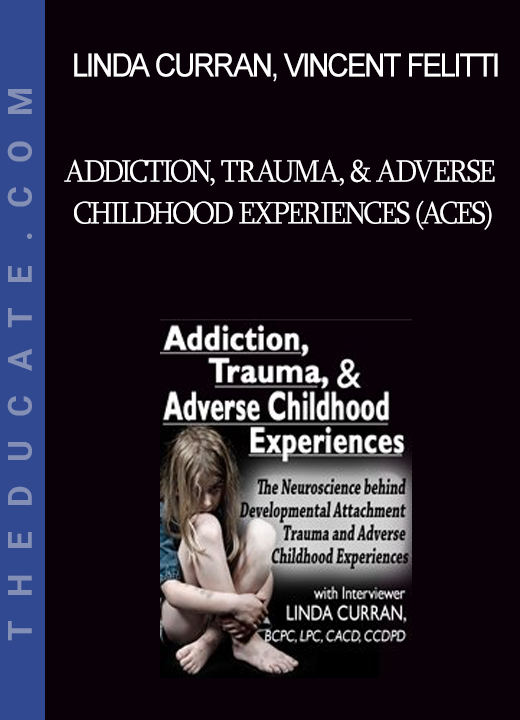



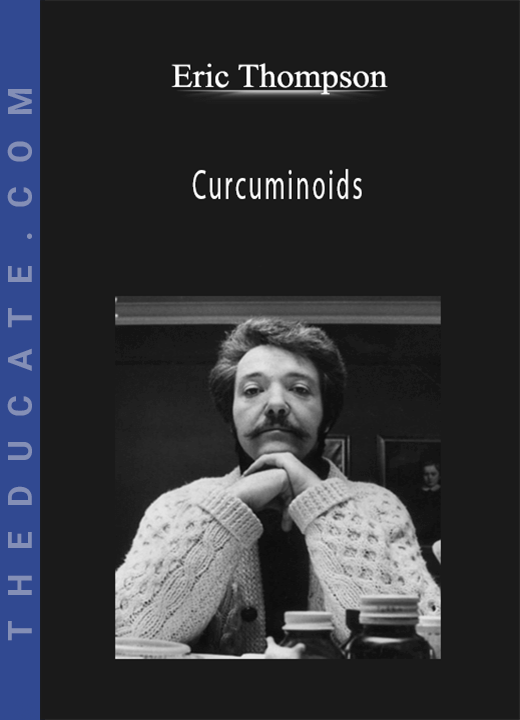

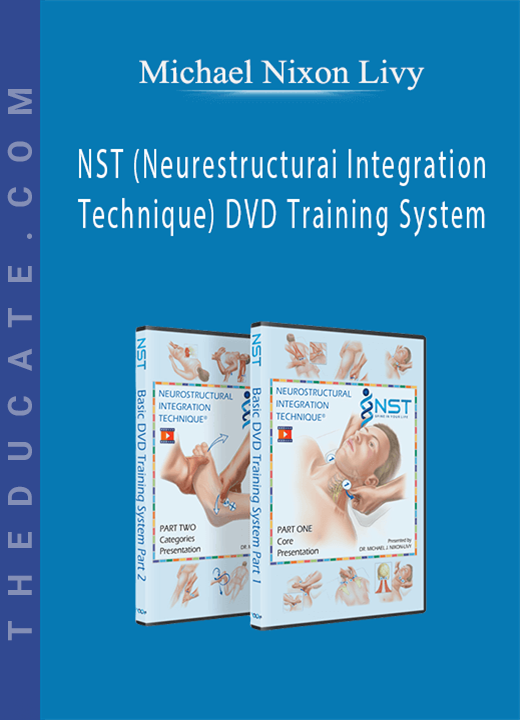
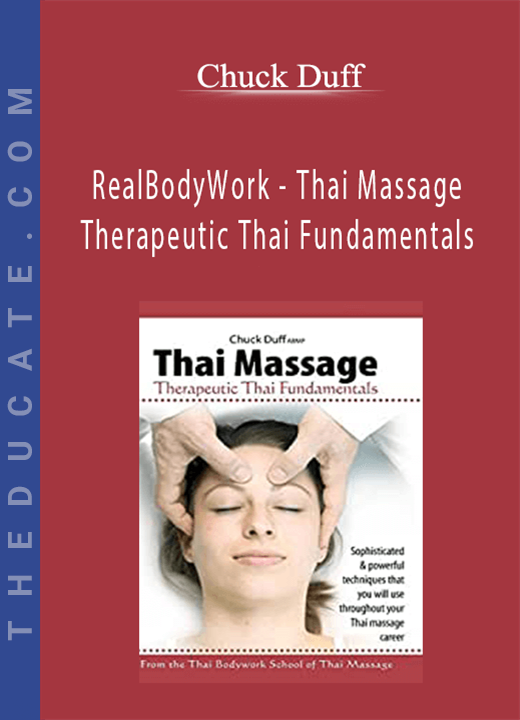
Reviews
There are no reviews yet.